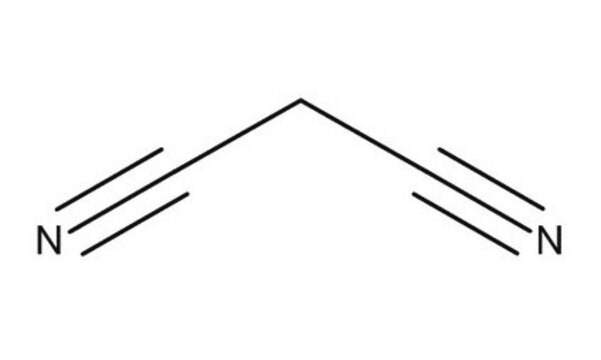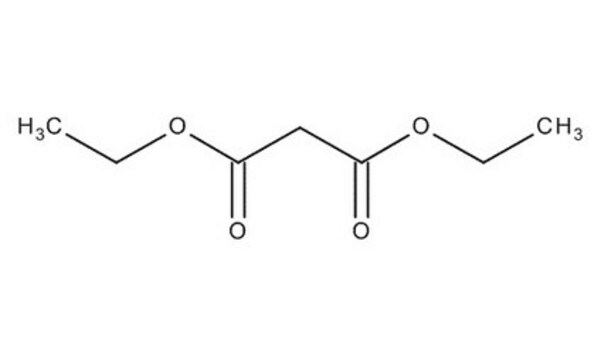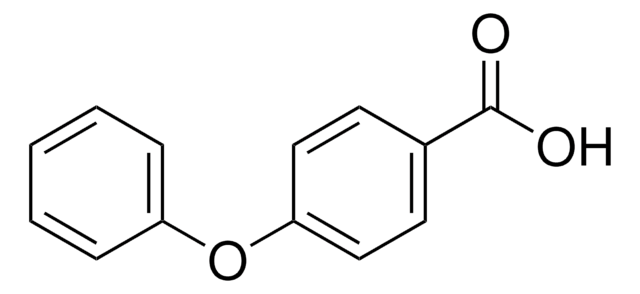M1407
Malononitrile
≥99%
Synonyme(s) :
Dicyanomethane
About This Item
Produits recommandés
Niveau de qualité
Pureté
≥99%
Point d'ébullition
220 °C (lit.)
Pf
30-32 °C (lit.)
Densité
1.049 g/mL at 25 °C (lit.)
Température de stockage
2-8°C
Chaîne SMILES
N#CCC#N
InChI
1S/C3H2N2/c4-2-1-3-5/h1H2
Clé InChI
CUONGYYJJVDODC-UHFFFAOYSA-N
Vous recherchez des produits similaires ? Visite Guide de comparaison des produits
Catégories apparentées
Description générale
Application
- base-promoted on-water synthesis of [1,6]-naphthyridines.†
- synthesis of γ-ketoamides.
- preparation of heterocyclic privileged medicinal scaffolds involving pyridine, 1,4-dihydropyridine, chromeno[2,3-b]pyridine and dihydro-1,4-dithiepine frameworks.
Conditionnement
Mention d'avertissement
Danger
Mentions de danger
Classification des risques
Acute Tox. 2 Oral - Acute Tox. 3 Dermal - Acute Tox. 3 Inhalation - Aquatic Acute 1 - Aquatic Chronic 1 - Eye Irrit. 2 - Skin Sens. 1
Code de la classe de stockage
6.1A - Combustible acute toxic Cat. 1 and 2 / very toxic hazardous materials
Classe de danger pour l'eau (WGK)
WGK 3
Point d'éclair (°F)
186.8 °F - closed cup
Point d'éclair (°C)
86 °C - closed cup
Équipement de protection individuelle
Eyeshields, Faceshields, Gloves, type P2 (EN 143) respirator cartridges
Faites votre choix parmi les versions les plus récentes :
Déjà en possession de ce produit ?
Retrouvez la documentation relative aux produits que vous avez récemment achetés dans la Bibliothèque de documents.
Les clients ont également consulté
Articles
Knoevenagel Condensation is an organic reaction named after Emil Knoevenagel. It is a classic C-C bond formation reaction and a modification of the Aldol Condensation.
Knoevenagel Condensation is an organic reaction named after Emil Knoevenagel. It is a classic C-C bond formation reaction and a modification of the Aldol Condensation.
Notre équipe de scientifiques dispose d'une expérience dans tous les secteurs de la recherche, notamment en sciences de la vie, science des matériaux, synthèse chimique, chromatographie, analyse et dans de nombreux autres domaines..
Contacter notre Service technique













![2-[Bis(methylthio)methylene]malononitrile 97%](/deepweb/assets/sigmaaldrich/product/structures/144/342/6a420594-3bce-4984-a8b7-5bf2a92d6a97/640/6a420594-3bce-4984-a8b7-5bf2a92d6a97.png)